|
Natural wonders are a great hook for learning more about a region's geography. This photo essay from National Geographic features 7 lesser-known natural wonders in Asia. www.nationalgeographic.com/travel/top-10/natural-wonders-asia/
0 Comments
This interactive video maps the cross-Atlantic slave trade from 1545 to 1860. Many Americans don't appreciate that only 3-4% of Africans sold into slavery were destined for the U.S.: the vast majority were sent to Brazil and the Caribbean, where the indigenous population had been wiped out. Each black dot crossing the water is a slaving ship; you can pause the video and click on any dot to learn about the ship's origin, destination, flag country, number of enslaved Africans aboard, and its history in the slave trade.
www.slate.com/articles/life/the_history_of_american_slavery/2015/06/animated_interactive_of_the_history_of_the_atlantic_slave_trade.html Oxford Dictionaries’ 2016 word of the year was “post-truth,” which it defined as an adjective “relating to or denoting circumstances in which objective facts are less influential in shaping public opinion than appeals to emotion and personal belief.” Since then, the term “alternative facts” has also entered into popular discourse.
What does this new environment -- in which “my opinion is worth more than your facts” -- mean for scientists, philosophers, and others who seek objective fact? And worse, is philosophy itself perhaps partly to blame? In this Nature article, philosopher Kathleen Higgins discusses both points and concludes that scientists and philosophers need to speak up and “publicly affirm the intellectual virtues that they so effectively model: critical thinking, sustained inquiry and revision of beliefs on the basis of evidence.” http://www.nature.com/news/post-truth-a-guide-for-the-perplexed-1.21054 Which is the biggest employer in each state? There's actually less variety in that answer than one might suppose. I put together these maps, based on data published by 24/7 Wall St., for a new class I'm teaching, showing the biggest employer in each state: pink is Walmart, blue is a hospital or health care system, green is the state university system, and yellow is "other."
American high school students (ages 15-18) have a rare opportunity to interact with their Iraqi peers this summer. The Digital Young Leaders Exchange Program is entirely online. Students in the U.S. and Iraq participate in webinars, video chats, and discussion forums as a means of cultural exchange and to brainstorm solutions to problems in their respective communities. Applications are due by March 15. For details see, dylep.org/
Interested in an in-person cultural exchange? Then check out the Iraqi Young Leaders Exchange program, which brings Iraqi teens to the U.S. for four weeks during the summer to interact with their American peers. iylep.tumblr.com/highschoolenglish Students can apply to both but can only participate in one of the programs. The U.S. is far from the only country with a red-blue divide reflecting differences in political views, income, health outcomes, education, and connection to the global economy. This map of England shows England's red-blue divide: among other things, people living above the line (in the red areas) reportedly have a shorter life expectancy (by a full year) and are less likely to send their children to a top 20 university (if at all). The only other European country with such a stark geographic divide is Germany, where significant differences between the former East and West Germanies persist. brilliantmaps.com/england-north-south/#more-2644
What do you do when an elected leader loses an election and still won't leave? That's been the question in the tiny African country of Gambia for the past six weeks. Yahya Jammeh, a former military officer who became president of Gambia in 1994, lost to Adama Barrow in the December 1 election. But then, citing election "irregularities," Jammeh refused to step down. Gambia's neighbors in West Africa took the unprecedented step of deciding to take a stand for democracy. West Africa's economic cooperation body, ECOWAS, oversaw the inauguration of Mr. Barrow, at the Gambian embassy in Senegal, and over the weekend succeeded in brokering the peaceful departure of Mr. Jammeh. (Gambia is the slender country surrounded by Senegal on this map of ECOWAS members: www.capacityplus.org/technical-brief-2/sites/technical-brief-2/files/fig1-tb2-larger.jpg)
These before-and-after photos, assembled by National Geographic, vividly illustrate changes to the planet's landscape. (To compare before with after, slide the white bar in the middle of each photo in the article to the right or left.)
news.nationalgeographic.com/2015/12/151229-before-after-earth-features/ A cartogram is a map weighted for a particular variable, in this case population. The colors, though, represent the findings of the Happy Planet Index, which seeks to measure life expectancy, life satisfaction, inequality of outcomes, and ecological footprint. By this metric, Costa Rica comes out on top (and Chad on the bottom). The U.S. is 108th out of 140. geographical.co.uk/places/mapping/item/2057-un-happy-planet
Why study philosophy? This article from The Guardian (UK) explains what Ireland is looking for by adding philosophy to its curriculum for 12- to 16-year-olds:
"Back in 2013, economists at Oxford University's Martin School estimated that in the next 20 years, more than half of all jobs would be substituted by intelligent technology. Like the prospect of robot-assisted living or hate it, it is foolish to deny that children in school today will enter a vastly different workplace tomorrow – and that’s if they’re lucky. Far from jobs being brought back from China, futurologists predict that white-collar jobs will be increasingly outsourced to digitisation as well as blue-collar ones. How should educationalists prepare young people for civic and professional life in a digital age? Luddite hand-wringing won’t do. ... In the near future school-leavers will need other skills. ... We will need people who are prepared to ask, and answer, the questions that aren’t Googleable: like what are the ethical ramifications of machine automation? What are the political consequences of mass unemployment? How should we distribute wealth in a digitised society? As a society we need to be more philosophically engaged. ... "Philosophy is difficult. ... It requires us to overcome personal biases and pitfalls in reasoning. This necessitates tolerant dialogue, and imagining divergent views while weighing them up. Philosophy helps kids – and adults – to articulate questions and explore answers not easily drawn out by introspection or Twitter. ... Philosophy won’t bring back the jobs. It isn’t a cure-all for the world’s current or future woes. But it can build immunity against careless judgments, and unentitled certitude." www.theguardian.com/commentisfree/2017/jan/09/philosophy-teach-children-schools-ireland Today's map highlights the country of Guyana, the only English-speaking country in South America. Oil companies announced earlier this month that they have discovered as much as 4 billion barrels of oil in the waters off Guyana, which is one of the poorest and least populous countries in South America. In time, Guyana could become South America's #2 oil producer, behind its large neighbor to the west, Venezuela, which possesses the world's biggest proven oil reserves (yes, bigger than Saudi Arabia's). placesbook.org/wp-content/uploads/2013/01/Guyana-map.gif
Duke University, the University of North Carolina, and the National Humanities Center have teamed up to create a free webinar for people interested in learning more about Muslims in America. The webinar, "Islam in America: A Cultural History," is Thursday (1/26) from 7:00-8:30 pm ET. The webinar is designed for but not limited to teachers. To sign up or find more details see events.r20.constantcontact.com/register/event?oeidk=a07edhqfs9zd9643b58&llr=kb46kgcab Do sign up early enough to get the link for the suggested reading in advance.
Tomorrow is the inauguration of Donald J. Trump as the 45th president of the United States. If you're wondering whom to thank or blame, depending on your point of view, for that turn of events, this map shows the counties that "flipped" in the November 2016 election. (Blue flipped from Romney in 2012 to Clinton in 2016; red flipped from Obama in 2012 to Trump in 2016.) brilliantmaps.com/wp-content/uploads/2016-us-election-county-changes.png
Demographics may not be destiny precisely, but their direction is difficult to change, especially in the short term. A recent article from Foreign Policy highlights key demographic trends shaping our future world. "What’s notable about these disparate trends is how much they are interrelated. They’re driven not just by the traditional demographic triad of births-deaths-and-migration, but by myriad powerful new forces that define modernity — from the empowerment of women, to improvements in health care, to the information and technology revolutions, to the concurrent rise of secularization and religious fundamentalism. However, the fact that they are connected does not mean they are universal. Beneath the broad umbrella of global demographic change, there will be sharp variances across regions (and sometimes within countries)."
For example, by 2050, "the world’s fastest-growing region, Africa, is projected to see its population more than double, while the slowest-growing region, Europe, is expected to see its population decline by about 4 percent. This means that in 2050 there will be around 3.5 times more Africans (2.5 billion) than Europeans (707 million). In 1950, there were nearly twice as many Europeans as Africans." features.foreignpolicy.com/heres-looking-at-you-2050-christianity-islam-aging-population/ Permafrost turns out to not be quite as "perma" as Soviet planners thought. When the Soviet Union threw up new cities in Siberia to support the extraction of various natural resources there, infrastructure and buildings, including multistory apartment buildings, were constructed on top of the permafrost. Now, as the permafrost has begun to melt and shift, the structural integrity of these cities is at risk. A new study looks at engineering threats to Siberia's cities: onlinelibrary.wiley.com/doi/10.1111/gere.12214/full Permafrost underlies as much as 2/3 of Russia's landmass.
Parts of California and Nevada have recently experienced drenching rains, record winds (including sustained winds of more than 100 mph and a recorded gust of 173 mph), and, in the Sierra Nevada mountains, as much as 84" of snow in two days (!). The extreme weather has been attributed to a meteorological phenomenon known as a "pineapple express," a thin river of warm, moist air originating near the Hawaiian islands. To learn more about atmospheric rivers (green on this map) and their importance to regional climates, see www.esrl.noaa.gov/psd/atmrivers/
Friedrich Nietzsche. Maybe you've heard the name but never actually read his work. Nietzsche is Oxford University Press's January 2017 "Philosopher of the Month," which seems fitting given Nietzsche's tendency to be viewed either as refreshing and provocative or as appalling and infuriating. If you're interested in reading some representative Nietzsche, Beyond Good and Evil is available as a free PDF: www.holybooks.com/wp-content/uploads/Nietzsche-Beyond-Good-and-Evil.pdf
El Salvador reported yesterday that Thursday was its first day without a murder since January 22, 2015. El Salvador and its neighbor Honduras have the world's highest homicide rates. Although Latin America and the Caribbean contain only about 8% of the world's people, countries in the region account for roughly 1/3 of all homicides globally. This interactive visualization tool maps out global homicide patterns (based on 2015 data): homicide.igarape.org.br/
Connect your students to the outside world by corresponding with a Peace Corps volunteer! My students and I have exchanged messages with Peace Corps volunteers in the field in Tanzania, Ukraine, Kazakhstan, and Armenia. The Peace Corps Correspondence Match will help you find a volunteer currently on assignment in a part of the world of interest to your kids. Home schoolers (and non-school student groups) are welcome to participate. www.peacecorps.gov/educators/correspondence-match/
Time magazine has tried to map out the business holdings of U.S. President-elect Donald Trump. This map shows where Trump is believed to have business interests. (The opacity of some of the legal arrangements and lack of financial disclosure make it difficult to know for certain if this is the extent of his businesses, though.) The accompanying article provides additional detail about what and where. time.com/4629308/donald-trump-business-deals-world-map/
This interactive visualization reveals important patterns in the world's $15.6 trillion in cross-border trade in 2015. Each dot (color coded to represent different categories of trade) represents $1 billion in trade, based on the U.N. Comtrade database. blueshift.io/international-trade.html
It's the beginning of summer in Antarctica, and scientists have announced that a section of Antarctica's ice shelf the size of Delaware is likely to break off this season. The Larsen C ice shelf is Antarctica's 4th largest and sits atop the Weddell Sea, near the end of the peninsula that points towards the tip of South America. If the 5,000 square km chunk of Larsen C does break off, it will create one of the largest icebergs ever recorded. This photo is an aerial view of the crack, which abruptly fissured an additional 18 km last month. www.washingtonpost.com/news/energy-environment/wp/2017/01/06/the-crack-in-this-antarctic-ice-shelf-just-grew-by-11-miles-a-break-could-be-imminent/
By most accounts, Mongolia is the least densely populated country in the world. (Mongolia's population density is <2 people per square kilometer, which is even lower than the state of Wyoming's.) This map shows that nearly half the country's population (in pink) lives in or near the capital of Ulaanbaatar. i.imgur.com/iG3wPVM.png
For centuries, one of the main concerns of the branch of philosophy known as philosophy of mind has been the mind-body problem: is a mind any different from a physical brain? As brain science has advanced, it has been increasingly difficult to hold the dualist position (that a mind and a brain are two related but distinct entities). Recently, however, researchers have found a new type of memory that seems to lack a physical correlate in the brain. Cognitive testing has shown subjects can retrieve information without a functional MRI detecting neurons firing. Is this evidence of a mind separate from the physical brain? Or a new window into an as-yet-unknown aspect of brain mechanics? news.wisc.edu/magnetic-brain-stimulation-can-bring-back-stowed-memories/
It was big news for elephants last week when China announced that ivory sales will be banned at the end of 2017. However, U.S., European, and Japanese consumers remain a key threat to endangered species around the world -- everything from endangered fish on the dinner table to vulnerable hardwoods in furniture and flooring to the replacement of rainforest with palm oil plantations for cookies and cosmetics. Environmental economists traced local environmental losses to their final destination on the world market. The map below shows the impact of U.S. consumers; the linked article includes maps detailing the impact of European and Japanese consumers. news.nationalgeographic.com/2017/01/maps-reveal-how-global-consumption-hurts-wildlife/
|
Blog sharing news about geography, philosophy, world affairs, and outside-the-box learning
Archives
December 2023
Categories
All
|
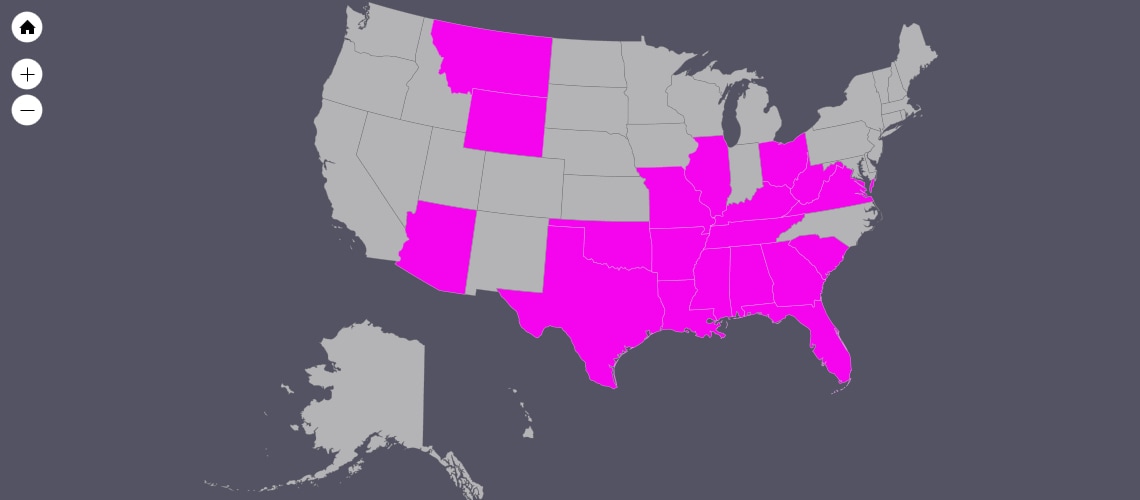
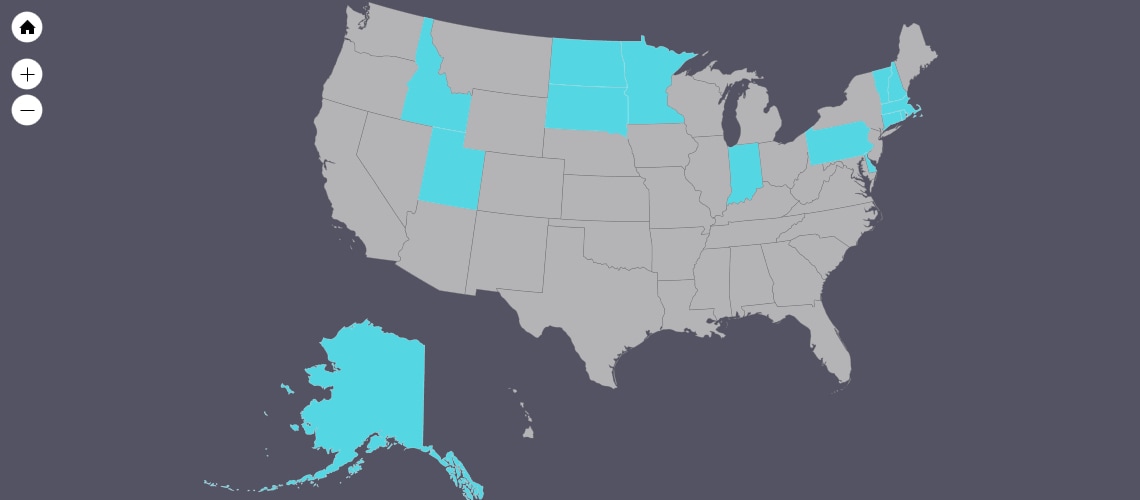
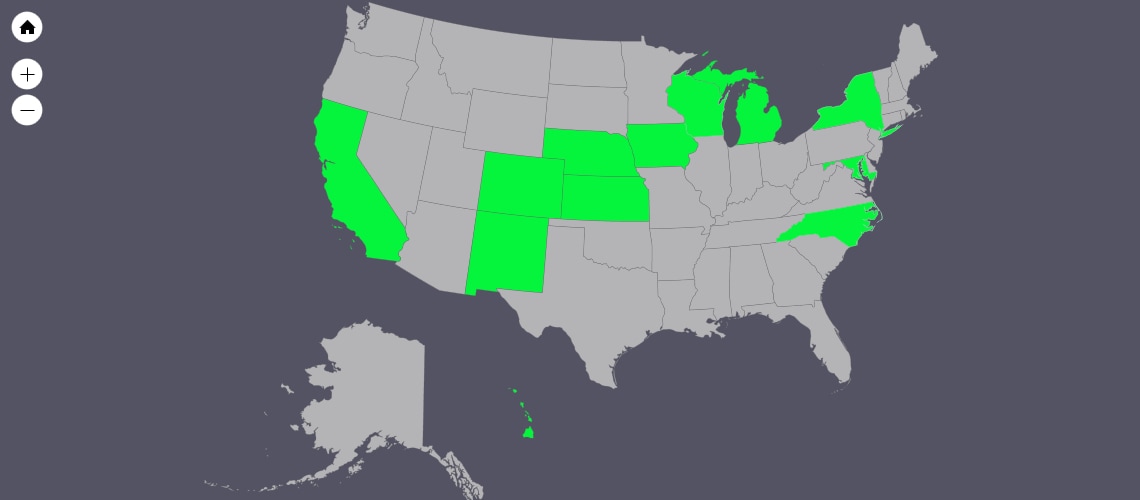
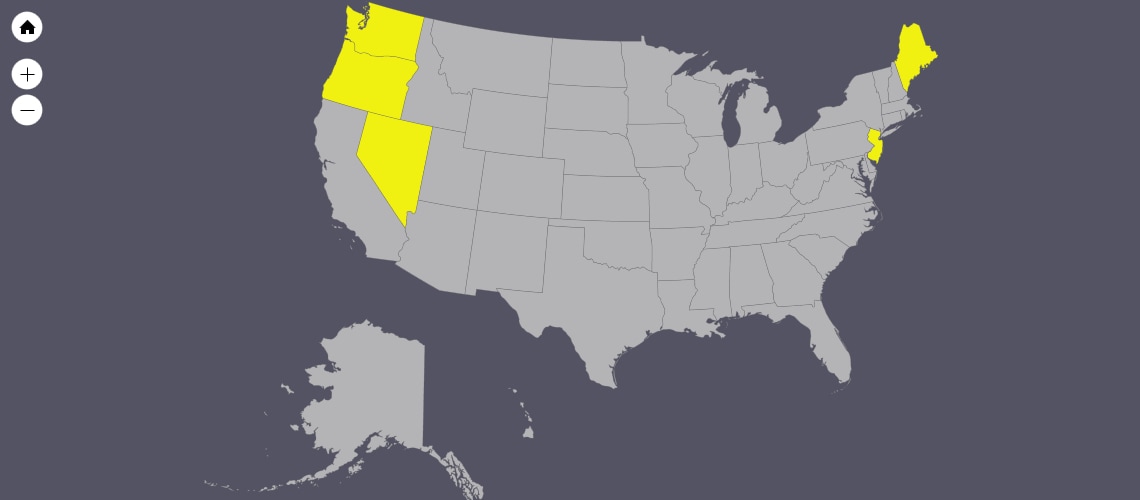
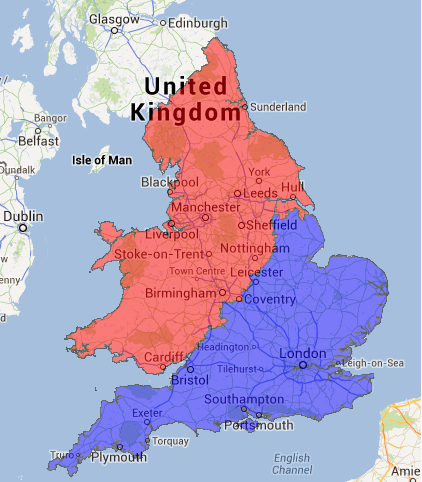
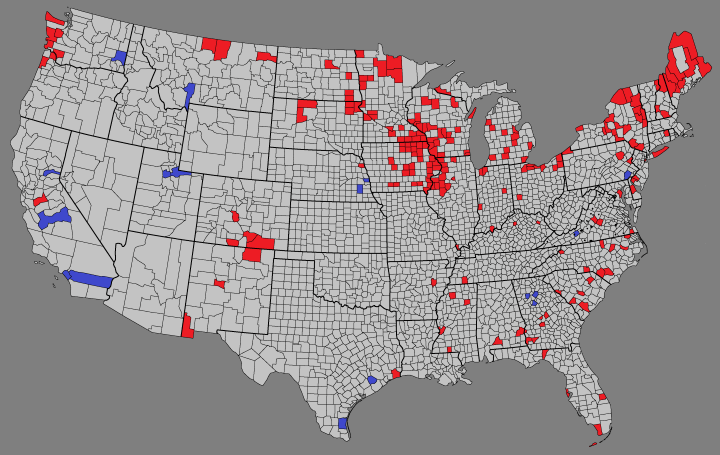
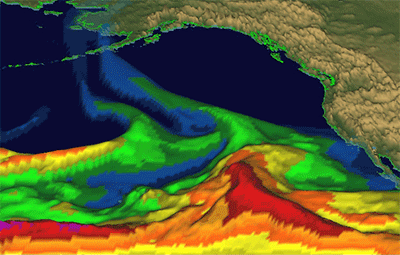
 RSS Feed
RSS Feed